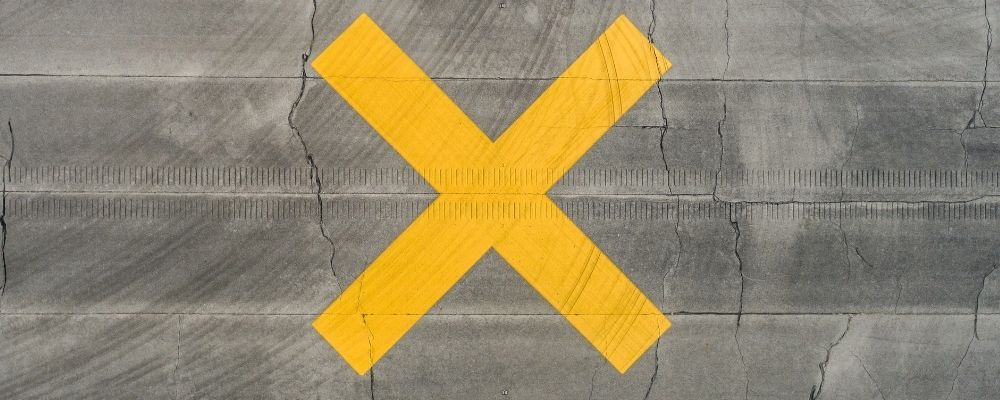A Div 7A loan write-off can result in a deemed Div 7A dividend.
Div 7A Loan Write-Off
You had a Div 7A issue. You dealt with it without recognising a deemed Div 7A dividend – either because there was no distributable surplus or amendment periods had passed.
But now you still have these Div 7A loans sitting on your balance sheet. One day they need to go – for example when you want to liquidate the company.
What happens then? That is what Andrew Henshaw of Velocity Legal Legal in Melbourne will discuss with you in this episode. Here is what we learned but please listen in as Andrew explains all this much better than we ever could.
To listen while you drive, walk or work, just access the episode through a free podcast app on your mobile phone.
Div 7A Loan Write-Off
Will a Div 7A Loan write-off trigger a deemed dividend under s109F ITAA36? That is the question.
To make this easier, let’s assume you have two companies – company A and company B. Both companies have a Div 7A loan on their books. And both companies did not recognise a deemed Div 7A dividend. But for different reasons.
Company A
Company A changed accountants and only now realised that they should have recognised a deemed Div 7A dividend in past years. But the individual tax returns of the relevant shareholders are outside of the amendment period. You can no longer amend those returns to pick up that dividend.
So there is a deemed Div 7A dividend but the relevant individual tax returns can no longer be amended.
Company B
Company B is in a different position. They were aware at the time that they had a Div 7A loan but the company had no distributable surplus in the year the deemed Div 7A dividend would have arisen. So there was no deemed dividend.
And so now both companies still have these loans from the company to the shareholder in their balance sheets. What do you do with those? Will they just sit there forever? Can you write them off?
Yes, you can write them off, but one scenario might trigger a Div 7a deemed dividend. But to start with let’s look at the relevant legislation
s109 F (1) ITAA 36
Section 109F says the following:
“(1) A private company is taken to pay a dividend to an entity at the end of the private company’s year of income if all or part of a debt the entity owed the private company is forgiven in that year and either:
(a) the amount is forgiven when the entity is a shareholder in the private company, or an associate of such a shareholder; or
(b) a reasonable person would conclude (having regard to all the circumstances) that the amount is forgiven because the entity has been such a shareholder or associate at some time.”
So if you forgive a Div 7A Loan, you trigger a deemed dividend under s109F – at first.
But then there is a note under (1) and that says.
“Note: In some cases forgiving a debt does not give rise to a dividend. See section 109G.
s109G
So let’s look at s109 G – and what now follows is really confusing.
“(3A) Subsection (3B) applies if:
(a) a private company is taken under section 109F to pay a dividend at the end of a year of income because of the forgiveness of an amount of a debt resulting from a loan; and
(b) the private company is taken under section 109E to pay a dividend at the end of an earlier year of income in relation to the loan.
(3B) The amount of the dividend mentioned in paragraph (3A)(a) is reduced by the amount of the dividend mentioned in paragraph (3A)(b) (but not below zero).”
So whenever you had a deemed dividend under s109E, that amount can’t trigger another dividend under s109F. You can’t be taxed twice for the same amount, that is what s109G is telling you.
And this is really important for Company A as you will see. Because Company A had a div 7A dividend but it wasn’t recognised because of a passed amendment period.
Company B however never had a deemed dividend thanks to no distributable surplus.
Why No Deemed Dividend?
So the big question re a write-off is: Why did you not recognise a Div 7A dividend?
If there is no dividend because of a passed amendment period, all good – you had a dividend under s109E and so now thanks to s109G, s109F can’t hit you with another dividend. So you can write off the loan but no tax deduction.
But if there is no dividend because of a zero distributable surplus, then you have a problem. Because you never had a dividend under s109E. So s109G can’t protect you. The loan write-off will trigger a Div 7A dividend under s109F. So not having a distributable surplus, just postpones the issue. It doesn’t solve it.
Whereas having passed the amendment period solves it for good.
So Company B should write off the loan when it has no distributable surplus – again. That is the only way out for Company B. If Company B does the write-off in a year with a distributable surplus, it will need to recognise a deemed dividend.
MORE
Disclaimer: Tax Talks does not provide financial or tax advice. All information on Tax Talks is of a general nature only and might no longer be up to date or correct. You should seek professional accredited tax and financial advice when considering whether the information is suitable to your or your client’s circumstances.
